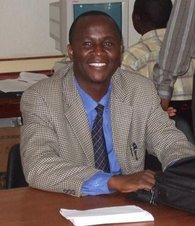
The Strong Character and Culture of the People of Malawi
To understand Civitas Malawi properly, one needs a deeper insight into the circumstances—sometimes quite humble—that shape the character of the people and the country. In international circles, Malawi is popularly known as “The Warm Heart of Africa,” because, the people are renowned for their warmth and friendliness; and, weather-wise, it is almost always warmer here than in other parts of Africa. The following pictures depict cultural dances, people at a party, one of many outdoor markets; and, people mingling, walking freely without fear of anything or anyone.

On the other hand, it is also a well known fact that debilitating poverty is rampant in Malawi. Almost everyone lost a loved one or friend in the famine of 2001-2002. Widespread poverty is illustrated by poor living conditions and scarce resources for most of our pupils and their schools in the poor rural and urban areas.
As a result of this poverty, many women and children, instead of continuing their education, bear the burden of the labour needed for the daily tasks of fetching water and firewood for cooking and cleaning, primarily because electricity and water plants are unavailable or undependable. Women and girls do this and all of the other labour-intensive jobs needed to keep the home running, as well as endure the same kinds of devastating sexual discrimination and harassment other women and girls face around the world. Many of the uneducated or untrained men try to earn some form of cash as hired manual workers such as in construction, cutting and selling firewood or coal, setting up their own small business (micro-enterprise), however, the work is usually temporary, scarce or seasonal. When parents can’t find work or there’s too much work at home or the farm to keep it running well, even some of the best most deserving pupils, frequently girls, have to drop out of school to work at home or earn money for the family. We at Civitas Malawi are doing what we can to help children stay in school which we know will be their only chance to find productive work as healthy adults, build a happy life and strong communities, and become active, effective democratic citizens. Towards this goal, future Civitas Malawi efforts will also focus on building partnerships with university departments and students, as well as community leaders, to explore and discover what can be done practically and soon to improve the status of the poor in Malawi.
Still, abject poverty and the lack of basic resources in Malawi—a young multi-party democracy—stands in paradoxical contrast with the natural beauty and warmth of the landscape and the strong character and culture of the people. Look deeper into the dreams and aspirations of the people, especially the young, and you will find enormous potential and a richness of spirit that, if nurtured and guided by extraordinary experiential educational programs like Project Citizen, will carry Malawi forward to a more prosperous future. If given a proper chance, as only a good democratic education can provide, the young people of Project Citizen Malawi will fulfil Dr. Elias Chakwera’s pronouncement that they, indeed, are the “hope of Malawi.”
 Fay Kelle, Ph.D., who is in Malawi for 2 ½ months from the University of Arkansas Clinton School of Public Service performing her International Public Service Project (IPSP), spoke with students on July 27th about “Learning to Build Character and the Skills of Democratic Citizenship in Difficult Circumstances in Malawi.”
Fay Kelle, Ph.D., who is in Malawi for 2 ½ months from the University of Arkansas Clinton School of Public Service performing her International Public Service Project (IPSP), spoke with students on July 27th about “Learning to Build Character and the Skills of Democratic Citizenship in Difficult Circumstances in Malawi.” Misheck Munthali, Country Director for Civitas Malawi and Project Citizen Malawi, the organization that sponsored Dr. Kelle’s IPSP work, also pointed out to the students how promoting their own individual development could also help them build a prosperous democratic society in Malawi.
Misheck Munthali, Country Director for Civitas Malawi and Project Citizen Malawi, the organization that sponsored Dr. Kelle’s IPSP work, also pointed out to the students how promoting their own individual development could also help them build a prosperous democratic society in Malawi.  Students Listen Intently at the Zomba CCAP Community Day Secondary School
Students Listen Intently at the Zomba CCAP Community Day Secondary School Students Learn to Question at the Zomba CCAP Community Day Secondary School
Students Learn to Question at the Zomba CCAP Community Day Secondary School  Main Buildings of the New Suburban Zomba CCAP Community Day Secondary School
Main Buildings of the New Suburban Zomba CCAP Community Day Secondary School












